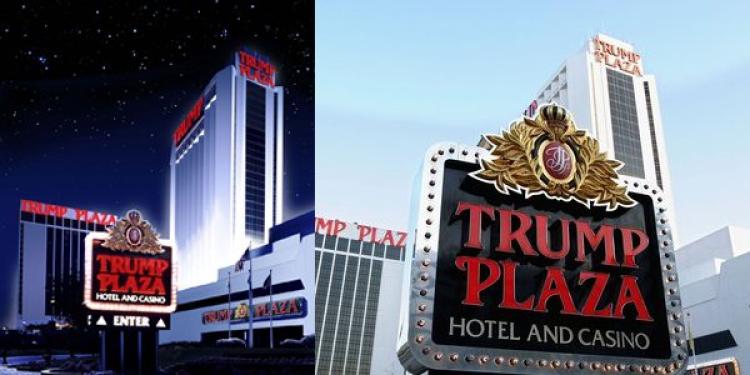Trump Bails On Atlantic City Leaving Local Economy In Doubt
Posted: July 14, 2014
Updated: October 4, 2017

Losing 33% of its casinos in a single year endangers Atlantic City’s economy and signals tough times ahead
When casinos arrived in Atlantic City back in 1978 they quickly became a pillar of the local economy not just in terms of employment but also in the knock-on economic effects of attracting people to the city to enjoy the freedom to wager that American gambling laws prevent in so many other states. However now, some thirty six years later, it would seems the sparkle is wearing off and the glittering lights of the Broadwalk are slowly going out one by one.
The recent announcements from the Revel Casino Hotel and the Showboat Casino Hotel that they would be closing at the end of the current summer tourist season have already sounded the alarm bells in the wake of January’s closing of the Atlantic Club Casino Hotel. With some 4,700 people already being made redundant the last thing the east coast gambling mecca needed was more bad news, but apparently when you’re on a losing streak…..
The Trump Plaza, established in 1984 by well known comb-over and wealth enthusiast Donald Trump, has now joined this lamentable list of losers by announcing that it too would be closing if a buyer could not be found, which seems unlikely. With three casinos now all up for sale potential investors are spoilt for choice and might be disinclined by the prevalent economic conditions that are anything but favorable to Atlantic City.
The State Division of Gaming Enforcement has released figures that show that casino revenues in Atlantic City as a whole have fallen 45% since 2006, a zenith of some $5.2bn. The Trump Plaza itself has seen a 26% fall in the amount it has won from punters just since the same time in 2013, leaving it barely making $4m. This stacks badly against 2013 as a whole when they gained less than $73m leaving them ranked dead last of the 12 casinos that existed this time last year.
Then There Were Eight
More bad news for Atlantic City
• The gambling news gets worse on the Broadwalk
• Trump to join Showboat and Revel
• Closures set for end of summer
Now, with four of the magic dozen either closed or in the process of doing so, local officials of every hue are expressing alarm and dismay at this apparent continuation of a slide they seem powerless to prevent. From the state legislature to the local unions the concern amongst many is the return of urban blight to the sparkly scenes that this ocean-side locale has exuded during it’s decades of decadence.
“It’s a disaster.” Said state Senator Jim Whelan, “This is going to impact all sectors of the economy, from big stores to real estate values and on and on.”
William Hughes Jr who is running for congress insisted that more must be done to stave off what he termed a “catapulting” of the region into “an economic catastrophe.” Whilst the incumbent against whom, he is running, US Representative Frank LoBiondo expressed concern that the recent lobbying for new casinos in North Jersey in the state legislature puts Atlantic City under unnecessary pressure.
“I don’t see how that does anything but hurt Atlantic City.” He said.
But these political pronouncements are unlikely to do much to stimulate a local economy that was, according to experts, already flagging. So, whilst some have begun pointing fingers at what they see as the cause to blame for this situation, from other physical casinos to the rise of internet betting in the USA the reality behind this looming disaster isn’t as clear cut as they would have people believe.
Supply And Demand
Israel Posner, executive director of Stockton’s Lloyd D. Levenson Institute of Gaming, Hospitality and Tourism, has pointed out that no one cause can be isolated for this but that a number of factors must be taken into account but that the biggest of these was an over-supply for static levels of demand. “You’re still looking at a $6bn market,” he said. “Just because you add more seats on the bus, doesn’t mean you have more passengers.”
There are, in his few, too many mid-Atlantic casinos and not enough gamblers. Competition has become more fierce and this is reflected in the closures we now see on the Broadwalk. However some disagree and insist that the opening of the Revel in 2012 was the straw that broke the camel’s back which pretty much ignores the fact the market was already entering decline at that time and no single entity could be held responsible for that.
Some go further and lament that the modern casinos are owned not by local managers who rose through the ranks to become owners, but by the sort of faceless monolithic private equity firms who play percentages in the same way gamblers at the tables do. If they don’t see a return of a satisfactory level they pack up to go and play another game with very little concern for the economy of the city they leave behind.
With a full third of it’s casinos either gone or on their way out the city faces far from easy times ahead and it remains to be seen if the market can bear even the eight that remain. The sizable job losses scheduled for the end of the summer when the city slips into the economically leaner colder months will have a marked effect on the city and region which may just exacerbate the problems that the ocean side oasis of gambling has to deal with in 2014 and beyond.












